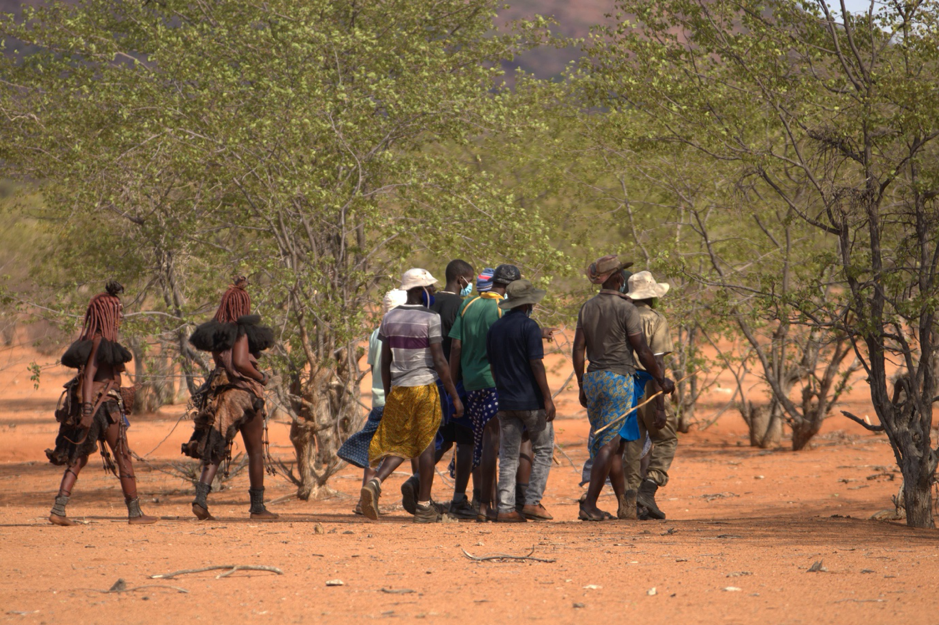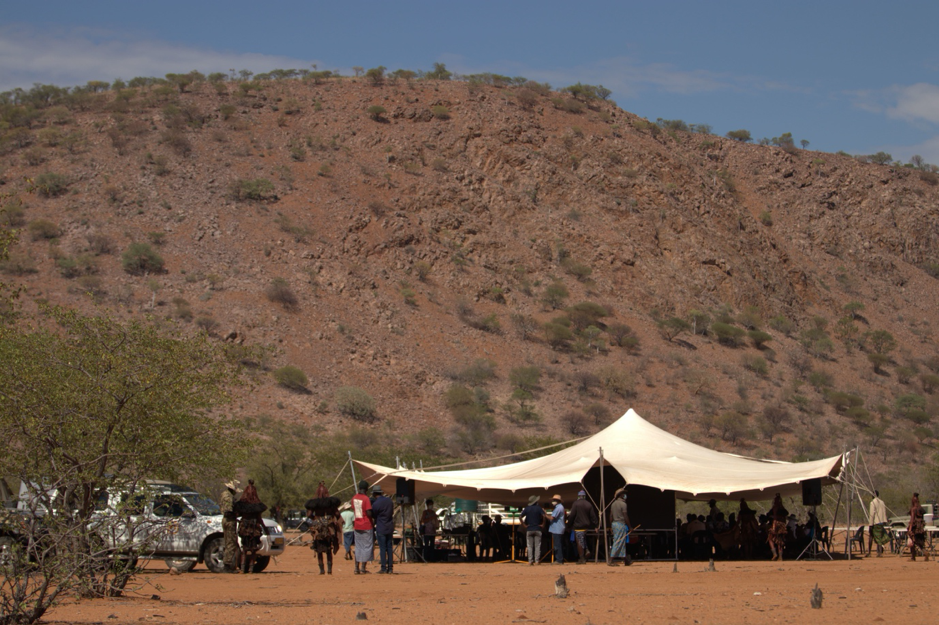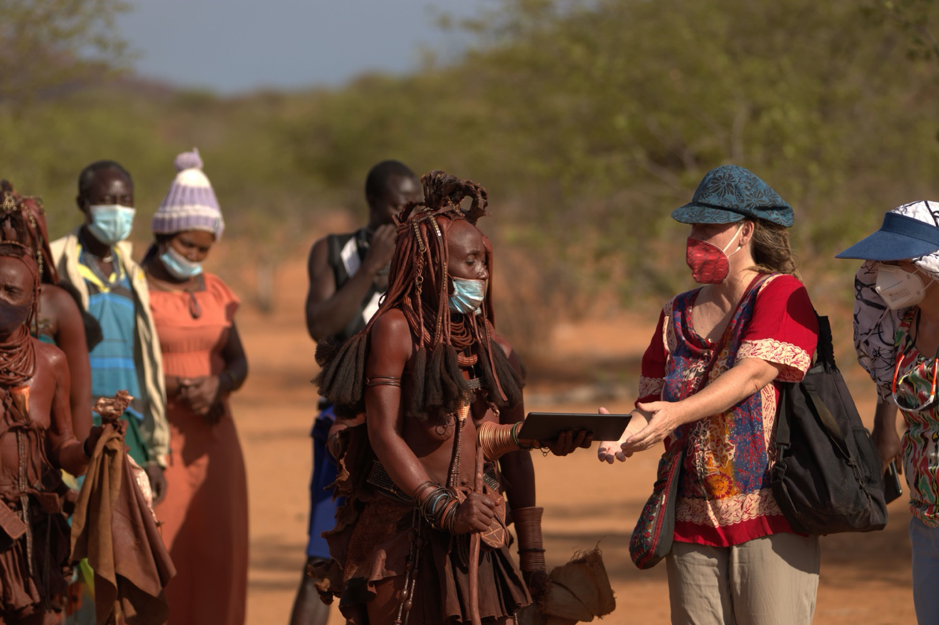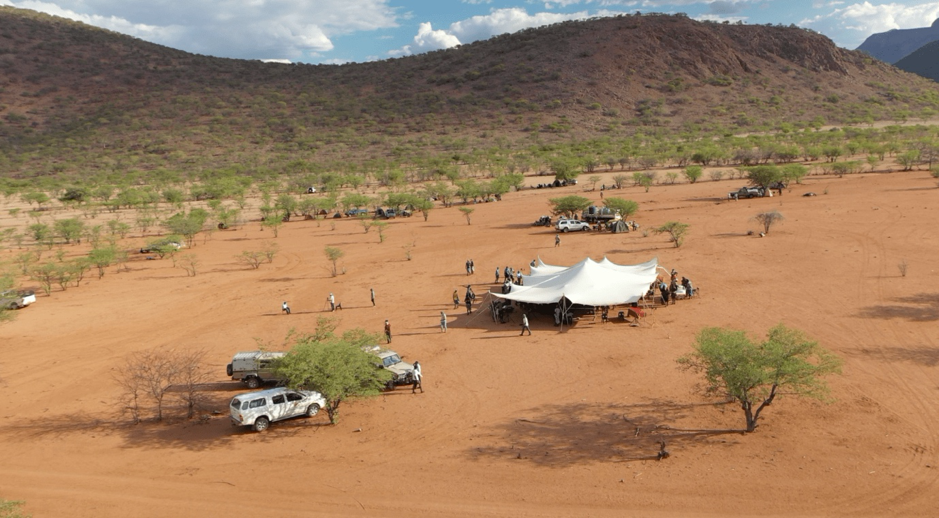Inaugural Community Knowledge fair
Dates: 12 -15 April 2021
Location: Epupa Conservancy
In April 2021, Epupa hosted the inaugural three-day Knowledge Fair under the banner of knowledge sharing for sustainable ecosystem management. Community members from four conservancies, Epupa, Okanguati, Orupembe and Marienfluss, together with SCIONA researchers, students and NGOs gathered in the scorching Namibian sun. Researchers and students presented their research work underlying human carnivore conflict, community wildlife perceptions, livelihoods, wildlife incident data collection, plant species data collection, community data portal and map presentations which transcend into a transdisciplinary fusion. At the forefront of the event was knowledge sharing, which is exemplified by an exchange between the conservancy members and Albertina Fillipus, a SCIONA endemic woody species student, during which Ms Fillipus expounded on the decrease of plant species in Epupa and surrounding areas. Thereafter, a myriad of discussions opened up, around climate change, loss of endemic plants and wildlife, and the protection of endangered species. There was an extensive discussion on how global warming has caused harm to their conservancies and how they can contribute towards combating it through researcher-community collaborations. In addition to collaborations pertaining the protection of endangered endemic and utilitarian plant species.. Human wildlife conflict was also a major point of contention, as several mitigation measures were explored. According to an Orupembe conservancy member, the above issues should be treated holistically. He emphasised that wildlife and ecosystems are interlinked, eliminating one conflict causing species creates room for another type of conflict. In addition, Mutjinduika Mutambo, the Epupa conservancy chairperson, mentioned that communities should not be excluded from the chain of human carnivore conflict management and plant conservation. The communities, specifically the game guards, stated that working with the SCIONA researchers exposed them to a broad range of technologies and management techniques, such as GPS devices, camera traps, drones and data collection applications. Practical use of technology was illustrated during several workshops and an ethnobotanical walk, where community members gave researchers a tour of endemic plant species in Epupa. At the same time, the community members recorded plant details with the mobile devices they were given under the SCIONA project as demonstration of their paraecologist skills. However, there was emphasis that these technologies and related infrastructures should be set up in a sustainable manner. As well, the communities requested that the knowledge fair should be annual event to ensure the continuation and scaffolding of knowledge transfer. Although the SCIONA project is coming to an end, the communities implored that the researchers continue working with them. Ketupeua Tjiposa, from Okanguati, specifically appealed for SCIONA to talk to IRDNC, a partner NGO, to continue and advance the work carried out.
Author(s): Chris Muashekele




